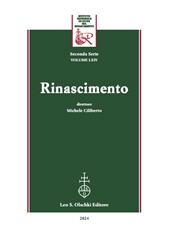«Sapiens est anima mundi» : l'uomo come anima del mondo in Charles de Bovelles e Giordano Bruno
P. 327-350
In Bovillus' philosophy the autonomous production of the propriae rationes of worldly substances links intellectual activity to material reality itself, giving it being; this is how the wise become the soul of the world. A wise man as oculus mundi elevates worldly substance to the intellectual level. For Giordano Bruno the intellect of individuals is also part of the world soul. The acting intellect, ever present in individuals, appropriates them, and their intellectual activity becomes part of the highest faculty of the anima mundi, which for Bruno – closer to Ficino's neoplatonism – also has the task of overseeing the life of worldly things. Bruno and Bovillus on one hand move away from Cusano's idea of intellectual activity as a conjectura, a fictio; on the other, they think of scientific activity as a source of the happiness of the wise, via a markedly Averroist reading. This is a strong sign of Bovillus' influence on Bruno's thought. [Publisher's text]
Ist Teil von
Rinascimento : seconda serie, LXIV, 2024-
Artikel aus derselben Ausgabe (einzeln erhältlich)
-
Informationen
DOI: 10.1400/299053
ISSN: 2037-6138


